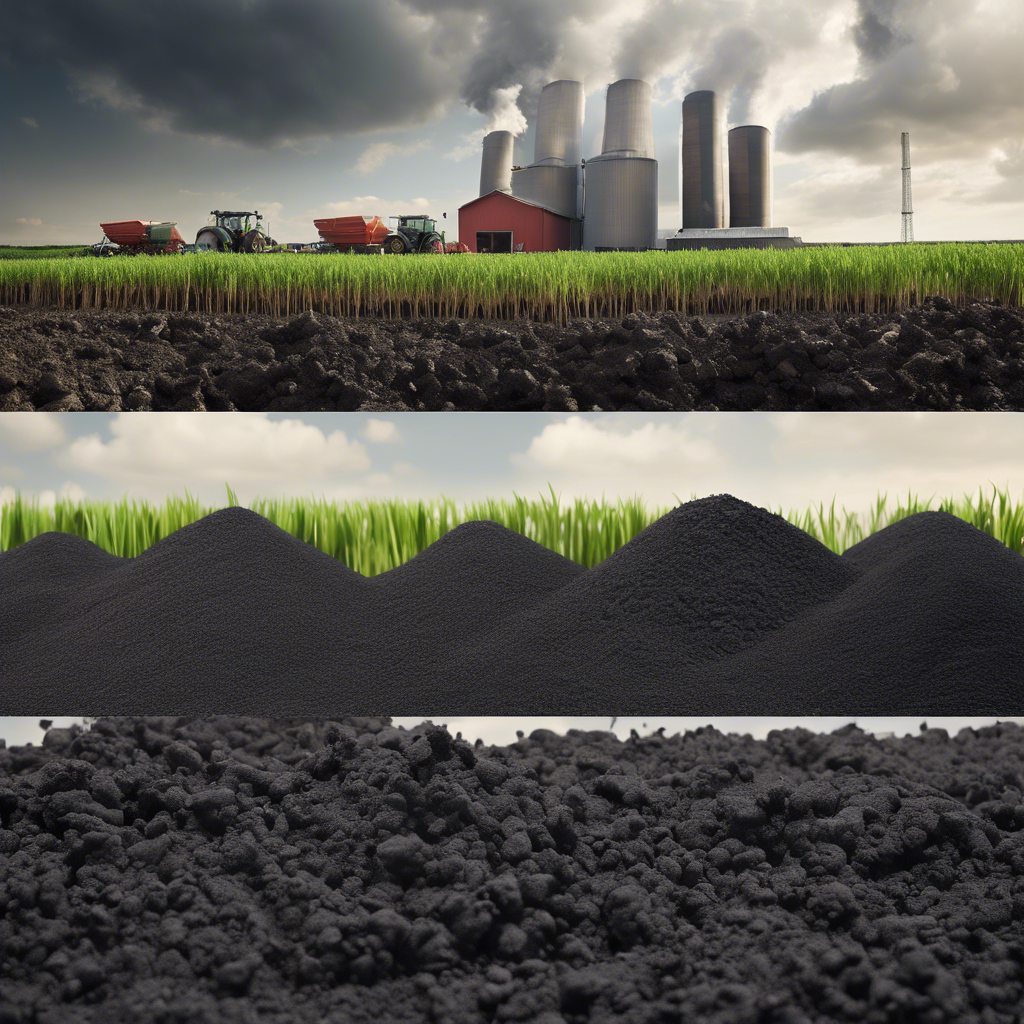In the realm of agriculture, sustainability has become a pivotal focus for businesses aiming to reduce their environmental footprint while enhancing productivity. One innovative and eco-friendly approach gaining momentum in the agricultural sector is the use of biochar for waste management and monetizing waste through biochar production.

Understanding Biochar: A Sustainable Solution
Biochar, a type of charcoal produced from organic waste through a process called pyrolysis, is acclaimed for its ability to enhance soil quality, sequester carbon, and promote agricultural sustainability. By converting agricultural waste such as crop residues, manure, and wood chips into biochar, farmers can effectively manage waste disposal while generating a valuable product with numerous benefits for the environment and their crops.
Advantages of Biochar in Sustainable Farming:
Improved Soil Fertility: Biochar acts as a carbon-rich soil amendment, enriching soil nutrients and enhancing microbial activity, which translates into better crop yields.
Carbon Sequestration: The stable carbon structure of biochar allows for long-term carbon storage in the soil, thereby mitigating greenhouse gas emissions.
Enhanced Water Retention: Biochar helps retain soil moisture, reducing the need for frequent irrigation and promoting water conservation.
Reduced Soil Erosion: By improving soil structure, biochar aids in preventing soil erosion and promoting long-term soil health.
Monetizing Waste Through Biochar Production
One of the most intriguing aspects of biochar lies in its potential to turn waste into a valuable commodity. Agricultural businesses can leverage biochar production not only as a waste management strategy but also as a source of additional revenue. By implementing biochar production systems within their operations, farmers can create a cyclical and sustainable waste management model that offers both environmental and economic benefits.
Opportunities for Agriculture Businesses:
Diversified Revenue Streams: By selling biochar as a soil amendment or carbon sequestration product, agriculture businesses can tap into new markets and revenue streams.
Cost Savings: Utilizing biochar as a soil enhancer can lead to reduced dependence on chemical fertilizers and improved crop resilience, resulting in long-term cost savings.
Enhanced Sustainability Profile: Adopting biochar as part of their waste management strategy allows agriculture businesses to showcase their commitment to sustainability, attracting environmentally conscious consumers.
The Future of Sustainable Farming Practices
As the agricultural industry continues to shift towards more sustainable practices, the adoption of biochar for waste management presents a promising avenue for businesses to align profitability with environmental responsibility. By harnessing the power of biochar, agriculture businesses can not only address waste challenges but also contribute to building resilient ecosystems and promoting long-term sustainability in food production.
In conclusion, the incorporation of biochar into agricultural operations represents a step towards a greener and more efficient future for the industry. By embracing this innovative solution for waste management and revenue generation, agriculture businesses can pave the way for a more sustainable and profitable tomorrow.
Let's join hands in cultivating a healthier planet through sustainable farming practices and the transformative potential of biochar!


Comments